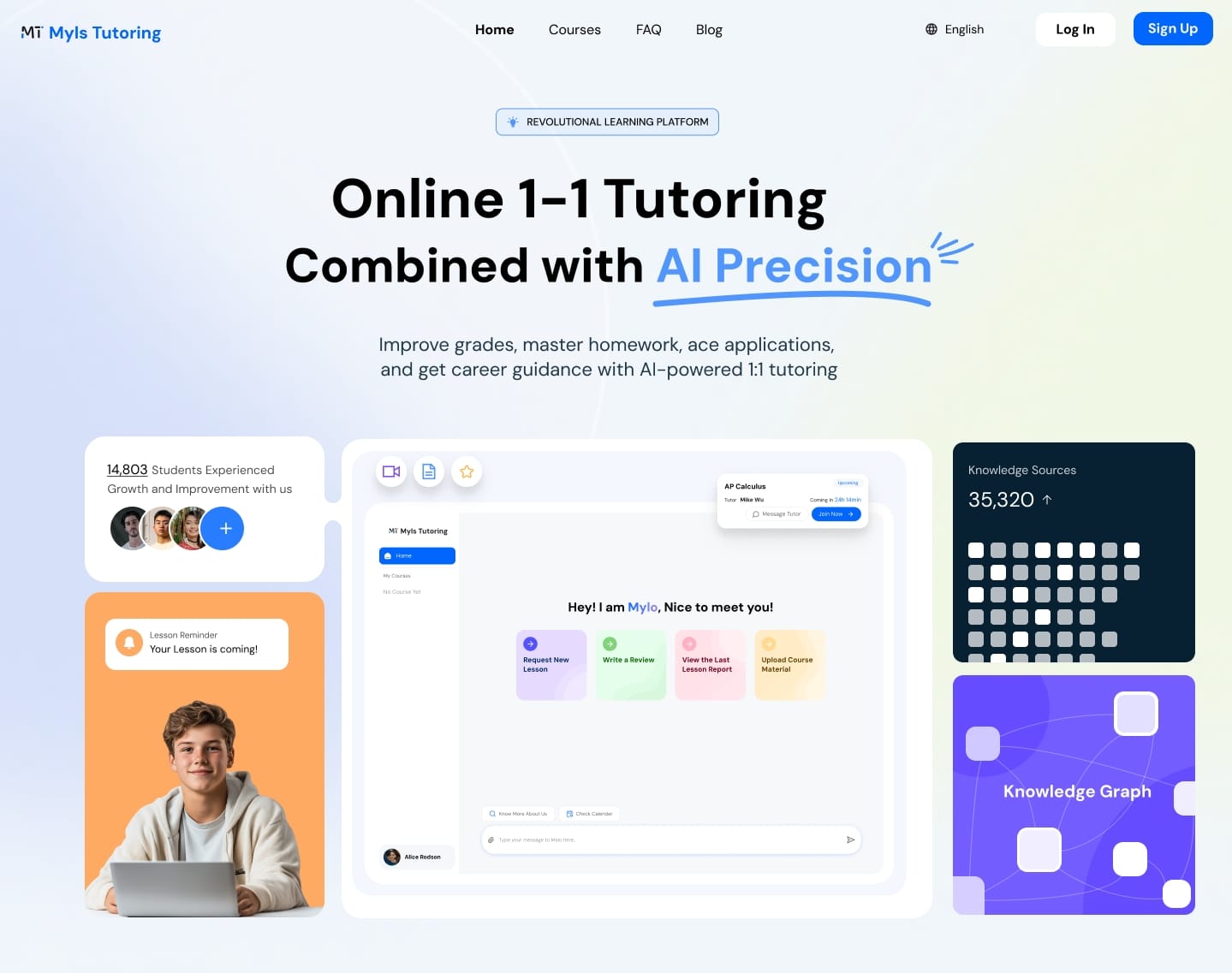Time Management Tips Every High School Student Should Know
Time management is a key skill for high school students—but it’s often overlooked. In this blog, we share practical tips to help teens study smarter, reduce stress, and build habits that lead to long-term academic success, with support from Myls Tutoring.

High school can often feel like a juggling act. With academic demands, extracurricular commitments, and a busy social life, students may find themselves rushing to finish assignments and prepare for tests. But there’s a better way to handle it all—one that doesn’t involve last-minute cramming or overwhelming task lists.
Time management isn’t just about being organized. It’s about making thoughtful decisions, studying efficiently, and creating daily habits that build long-term success. This blog explores proven strategies to help high school students take control of their time and study with greater impact.
Start by Tracking Your Time
Before you can improve your time management, it’s important to know where your time is going. Many students don’t realize just how much time gets lost to distractions like phone use or multitasking during homework.
Consider monitoring your time over the course of a week using tools like Toggl or RescueTime. Once you understand your habits, you can start making more deliberate choices about how to spend your day.
Prioritize with the Eisenhower Matrix
Not all tasks require the same level of effort or attention. The Eisenhower Matrix is a tool that helps students sort their tasks into four categories:
- Urgent and important
- Important but not urgent
- Urgent but less important
- Neither urgent nor important
This system encourages students to focus on what’s most valuable, reducing stress and preventing unnecessary last-minute rushes.
Make Time Blocking a Habit
Time blocking means dedicating specific chunks of your schedule to certain tasks. Instead of keeping a long to-do list, students assign time slots for studying, relaxing, reviewing material, and other daily needs.
Digital planners like Google Calendar make it easy to organize your day by setting aside time for:
- Focused study periods
- Breaks and review sessions
- Clubs or sports practice
- Meals and downtime
This method helps students align their daily activities with long-term academic goals.
Try the Pomodoro Technique
The Pomodoro Technique breaks study time into focused 25-minute sessions, followed by short breaks. After completing four sessions, you take a longer rest.
This strategy is effective because it increases concentration and minimizes burnout, according to research by Francesco Cirillo. It’s also a great way to manage procrastination and stay motivated.
Minimize Multitasking and Distractions
Multitasking may seem efficient, but it can actually hurt your performance. A study by Stanford University found that people who frequently multitask struggle to focus and retain information.
To stay on task:
- Turn off notifications or use “Do Not Disturb” mode
- Use website blockers like StayFocusd
- Set up a quiet, organized space for learning
Tackle Difficult Work First
When facing a long list of tasks, start with the most difficult or unpleasant one—this is often called “eating the frog.” Completing your hardest task first builds momentum and gives you a sense of accomplishment early in the day, as suggested by Brian Tracy’s productivity methods.
Use Spaced Repetition, Not Cramming
Rather than reviewing everything the night before a test, spread out your study sessions over several days. This approach, known as spaced repetition (Cepeda et al., 2006), improves memory and helps with long-term retention.
Apps like Anki or Quizlet are excellent for flashcard-based learning and reinforcing material over time.
Reflect and Improve Weekly
Time management is personal, and it gets better with practice. At the end of each week, take a few moments to reflect:
- Did I follow my schedule?
- What challenges did I face?
- What strategies helped me focus?
Use your reflections to refine your routine and make gradual improvements over time.
How Myls Tutoring Helps Students Manage Their Time and Study Smarter

At Myls Tutoring, we understand that academic success is about more than just completing homework—it’s about learning how to learn. That’s why our online tutoring platform doesn’t just support subject mastery, but also helps students develop better time management habits.
Here’s how we support smarter studying:
✅ Personalized Learning Plans: Online tutors assess students’ current skills and create customized plans that balance challenge and support—saving students time on what they already know and focusing on areas for growth.
✅ One-on-One Tutoring Sessions: Sessions are built around each student’s schedule and pace, ensuring efficient use of time.
✅ Goal-Setting and Check-Ins: Tutors guide students in setting academic goals and tracking weekly progress, so students stay accountable and motivated.
✅ Study Skills Coaching: From managing homework loads to building test prep schedules, we help students adopt habits that stick.
✅ Flexible Online Tutoring Sessions: With no commute, students can learn from anywhere and fit tutoring sessions into even the busiest schedule.
📚 Ready to help your teen study smarter—not harder?
🎯 Book your 30-minute trial lesson with Myls Tutoring today and discover how we help students master their time, stay motivated, and succeed with confidence.



